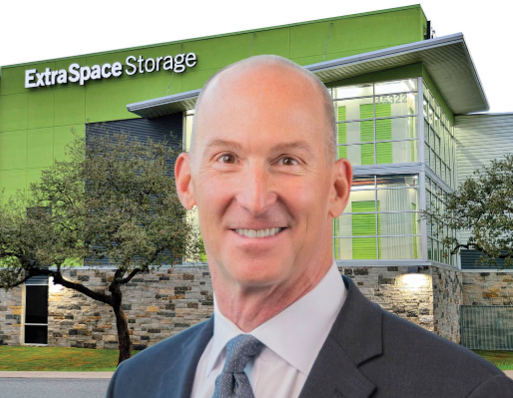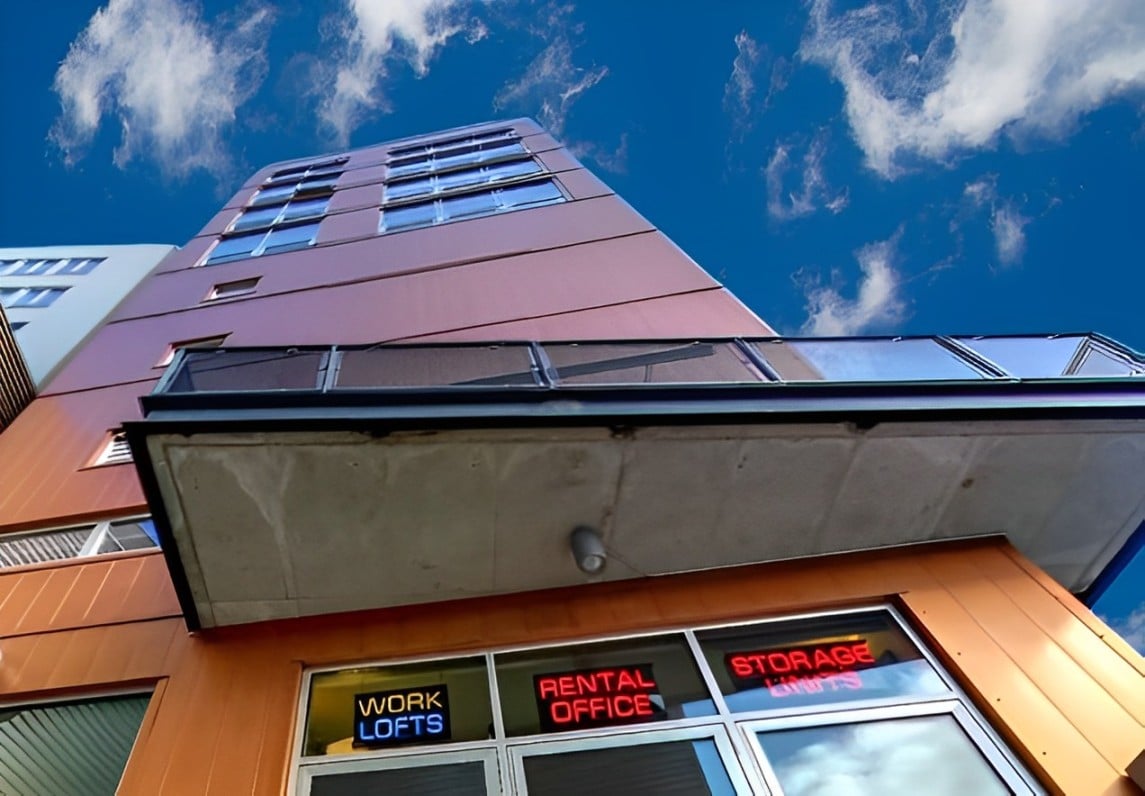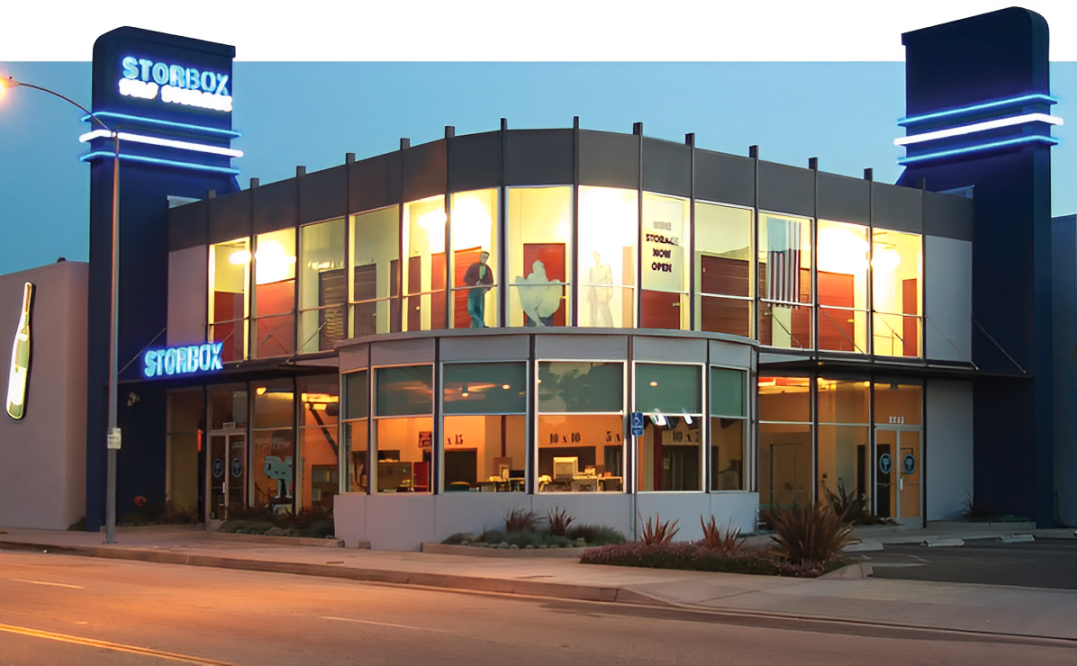Mixed-Use Storage
Mixing And Matching To Gain NOI
By Kerri Fivecoat-Campbell
Mixed-use storage, or the practice of combining other businesses on a facility’s property, is a practice that is becoming more common as land prices continue to increase and municipalities demand more retail or other-use space before granting approval.
However, it isn’t a new concept. As early as the 1980s, a few properties saw the value in adding satellite office space or combining some form of retail to self-storage.
That concept has expanded from offering warehouse space, hair salon suites, and even renting space to bands.
The goal is not only to provide a different income revenue source to increase the NOI, but provide more services and offerings to attract more people to the storage business as well. “We have found these other uses typically generate more self-storage customers,” says Raymond McRae, vice president of Storage Solutions in Chandler, Ariz. “For instance, an office client may use storage units for record retention or excess inventory.”
Even if the mixed-use tenant doesn’t rent storage space right away, they may do so in the future. “This person may not have ever knew we existed and, in the future, we may be convenient for them to rent space and allow them to help with their storage needs as well,” says McRae.
Office Space Rentals
American Store & Lock #5, located in Charlotte, N.C., is one of the self-storage facilities that incorporated office space rentals back in the 1980s. Built in 1988, the facility’s plans were originally to offer office space in addition to the 582 storage units.
Amanda Clontz, manager of the facility, says American #5 was built in two phases. The first phase had 12 office spaces in the office complex; the second phase added an additional nine spaces for a total of 21 offices. The facility offers several sizes of offices, including 12-by-12, 12-by-17, 16-by-31, 20-by-31, and 17-by-32; rents range from $268 to $1,050 per month.
According to Clontz, tenants sign a one-year lease. They can pre-pay for the entire lease, but most prefer to pay month to month. The facility’s tenants include a variety of business owners, including carpet cleaning companies, insurance agencies, a cleaning service, counseling services, contractors, car wholesalers, videographers, and landscaping businesses.
“It’s quite varied; just about anyone who needs an office space outside their home would be in our demographic,” says Clontz. “It also gives them a dedicated business address.” American Store & Lock #5 also offers private post office box services to its tenants and provides a free box to office space tenants. However, if the office tenants need Wi-Fi, they must provide their own.
In addition, the facility has a 12-chair conference room that is free for office tenant use. The room features a flat screen television, DVD player, and a small coffee bar where coffee and cups are provided. The facility has kept the reservation process relatively simple; office space tenants merely reserve the room by writing their name and times needed on the calendar that’s posted on the door.
Many of the office space tenants rent storage space at the facility as well. “Businesses typically rent the larger sized storage units,” Clontz says. “Some of our larger sized units are rented by people who also rent our office space.”
The office space complex has been very successful through the years for American Store & Lock #5; the office spaces are typically at 100 percent occupancy. What’s more, if someone does move out, staff have no problems quickly filling the space. “The only time we weren’t 100 percent leased was at the height of the recession,” recalls Clontz.
When they did have vacancies, Clontz says they ran ads in the local paper as well as on Craigslist, but the outside reader board nets more tenants than any outside marketing.
McRae’s company has 30 facilities; some of them provide mixed-use storage, some of them with office space that ranges from 500 to 1,200 square feet. The office space is metered for electric and each has its own telecommunications hookups.
“These are leased on a modified gross lease on an annual basis, so they are not month to month like our other product,” McRae says. “Some of these leases are multiyear leases with escalations in rent for each renewal year.”
While the facilities rent to typical businesses that would need office spaces, McRae says office space rentals are the hardest type of mixed-use offerings to keep consistently 100 percent occupied. “There are always some tenant improvements to be done as one tenant moves out, and factoring in the time it can take to recruit a new tenant can leave the space vacant for a short period of time, or sometimes longer than we would like,” he says.
Dealing with tenants on a day-to-day basis is one of the unique challenges presented to self-storage managers who also have office space rentals on the property, says Wayne Johnson, chief investment officer for Ladera Ranch, Calif.-based SmartStop Self Storage. “A person renting office space is typically there every day and may have more needs and concerns more often than someone who is renting self-storage,” says Johnson. “It’s nice for those people to have a friendly point of contact to help them day to day.”
SmartStop hasn’t sought properties that have built in mixed use, but those properties have been attractive to his company for acquisition. Otherwise, one of the important things to remember when offering mixed use is that you’re simply renting space as you would a self-storage unit. “We treat each office space like a unit,” says Johnson, “and it seems to run very nicely.”
The company has office space units that range in size from 12-by-12 to 15-by-20. However, SmartStop doesn’t require a long-term lease and rents the office units month to month. The rate per square foot is comparable to that of storage; many of the office tenants rent storage space as well.
Not requiring a long-term lease is a hallmark of the business plan for Clovis Self Storage and Executive Office Suites in Clovis, Calif. Tenants can lease for however long–or however short—of a time they need.
Clovis recognizes that one reason people are seeking alternative office space is for flexibility. This type of concept is also called work-space-as-a-service, and it offers fully serviced office space on flexible terms by the hour, day week, month, or year. Flexible lease terms allow businesses to rent what they need and expand or contract their space as needed without paying penalties.
“Industry-wide, virtual office and meeting room services grew during the recession, but the real story is that these segments actually emerged from the recession super-charged, posting double-digit growth in each of the past two years,” says John G. Jordan, past president of the Global Workspace Association. “Mobile workers who are self-employed or work with large companies have seen the benefits of shedding the risk and limitations of the traditional office in favor of virtual offices, touchdown space, and on-demand meeting spaces, and they are embracing these alternatives.”
Clovis aims its marketing efforts for the executive suites at mobile entrepreneurs, telecommuting professionals, and growing start-ups. The amenities include contemporary furniture, Cisco IP Telephony, High Speed Broadband, iPod Docks, DirecTV, and conference rooms, along with efficiency tools such as voicemail to the inbox, text notification of packages and mail, and back-up storage software. Phone, internet, utility bills, and use of the conference room is included.
The executive office suites side of the facility includes a business center with a copier, fax, and USPS postage meter, as well as FedEx shipping and receiving. There’s also a lounge and a kitchen with free coffee for tenants.
One of the most popular amenities at Clovis are the conference rooms, which are available to office space tenants and rented by the hour by other businesses. The facility has three large, presentation-ready conference rooms and an online reservation system. The rooms feature large LCD presentation screens, conference speakerphones, Wi-Fi access, high-speed internet, and whiteboards. The meeting room business has expanded throughout the country, offering mobile entrepreneurs the opportunity to hold larger meetings in a professional environment.
For its self-storage business, Clovis has 1,200 rentable units at the 120,000-foot facility and offers 25,000 square feet of climate-controlled space. Many of the executive office space tenants also rent self-storage space. As the entrepreneur’s business grows, they can move up their needs in storage space as well.
Clovis doesn’t have any competition for alternative office space nearby, which means the executive office suites are nearly always 100 percent occupied.
Workshops And Warehouse Space
Workshops have been popping up as additional mixed-use businesses for self-storage facilities. At Clovis, if a tenant doesn’t want use of a full office space, they can rent a “workshop” space, which has everything an entrepreneur needs minus the private office. It’s modeled more along the lines of the work sharing spaces that have been found in larger cities for years.
The workspaces at Clovis offer a personal cubical space with a dedicated phone line and lockable storage space. Workspace tenants, along with the executive office space tenants, have 24/7, unlimited access and unlimited nationwide phone service with a private number and voicemail.
When thinking of workshop space, many people equate that to more industrial type workshops that may be housed in warehouses, which is becoming a popular trend at self-storage facilities as well. Maxi-Space has eight locations; one is dedicated to self-storage, while seven are rentable warehouse spaces. “We like to say that the warehouse space picks up where self-storage leaves off,” says Brett Overfield, vice president of Maxi-Space, which is based in Tacoma, Wash.
The warehouses vary in size by each location and are portioned off into several hundred square feet of space for each tenant. Tenants include a company that rents children’s bouncy houses and mechanics who rent the dedicated garage spaces to work on vehicles or do paint jobs. What’s more, space is available at some of the locations for bands to practice. “Bands are very volatile and sometimes aren’t long-term rentals,” says Overfield.
Some SmartStop locations also rent warehouse space to tenants. While the office space is comparable to the rent per square foot to self-storage, the warehouse space is lower. “In some instances, the tenant might convert the warehouse space into self-storage, which leads to a better rate per square foot,” says Johnson.
The warehouse space at SmartStop ranges from 800 to 1,500 square feet; tenants include mostly industrial type businesses such as plumbers, electricians, and other type of contractors. On the smaller office space rentals, on-site managers are typically allowed to handle the rental leases; on the larger warehouse rentals, someone from the home office will typically negotiate the lease, which can become more complicated, especially if the tenant wants to make changes to the property to accommodate their business. “They [the tenant] have to put in the expense for any changes, which we typically allow, but we just have to get approval,” says Johnson, adding that most warehouse tenants also rent storage space.
Thinking Outside The Urban Box
Dave Fulton, CEO of SSG Development based in Boston, Mass., would prefer to do uncomplicated self-storage developments, but he says that is getting more difficult, especially in suburban and urban areas where municipalities want to see more mixed-use developments. Fulton, who has developed over 15 self-storage facilities, has developed two high-profile mixed-used properties.
The first was a facility in Assembly Square in Somerville, Mass., which is now a Public Storage facility. The six-story building was constructed in a high growth area Fulton knew would be profitable, but city leaders and neighborhood groups insisted the site also include an on-site café.
“When we are in a high barrier area like this, that has been the driver, to have some sort of mix use built into the plan,” says Fulton. “We have to create a street scape.” The 130,000-square-foot project ultimately included a 1,500-square-foot café at one end of the building, which was a completely separate business that leases space from the storage facility.
“It was a locally owned café that is still doing very well; I was in there not too long ago and talked to the owner,” says Fulton. However, getting to that point involved a multi-year approval process for permitting the former trucking site that involved what Fulton described as “very active, very involved neighborhood groups that wanted a mixed use and modern feel to the development.”
The other challenging project in Fulton’s mixed-use resume includes the current project in the Jamaica Plain neighborhood in Boston. The 130,000-square-foot, four-story storage facility will be managed by Extra Space when it opens in the third quarter of 2018.
In addition to storage, which will be on the back lot of the site, the former three-acre industrial site will include 25,000 square feet of retail space on the ground level of a five-story building that will also include 84 condominiums and underground parking. The third and final portion of the project will include 44 apartments.
The $80 million project has been in the works for years, gaining approval from neighborhood groups and city leaders. In addition, the site was subject to an extensive $3 million environmental clean-up.
For Fulton, the project is contrary to his favorite projects, which are uncomplicated self-storage facilities. However, he knew going into this project that mixed use was going to have to be part of the equation to get approval. “Storage is the core business and driver, and it’s a perfect growth area in the city,” says Fulton.
The condos will be sold to individual owners and tenants in the retail space will rent the space from a management company. The retail space is already at a 75 percent lease rate and has just recently broken ground. The lot that will house the apartments has already been sold to another developer and the projected date for that project is yet to be determined.
Mix It Up
Mixed-use storage does add value to a project, especially in high barrier areas where municipality demand is greater. If you’re considering adding mixed-use to your existing development, some cautionary advice includes ensuring you have adequate spaces for parking for tenants who will be there on a regular basis. Fulton advises operators to know the requirements for using union labor. In municipalities such as Boston, unions wield a lot of power and can substantially increase your construction costs.
McRae recommends to ask yourself the following questions:
- How much undeveloped land do you have to add mixed use?
- What does zoning in your local jurisdiction allow?
- How difficult is it to obtain zoning?
“We would advise anyone considering this to do their due diligence; have a site and market analysis performed, especially if they are new to self-storage,” says McRae. “If you are new to the business, hire a professional in the self-storage industry to help you determine if this is right for you.”
Kerri Fivecoat-Campbell is a freelance journalist based in the Ozark Mountains. She is a regular contributor to MiniCo’s publications. Her business articles have also appeared in Entrepreneur, Aol.com, MSN.com, and The Kansas City Star.
More Content
Popular Posts
The REITs new pricing strategy – lowering...
The self storage industry is in a precarious...
With the approval of both companies’...
Recent Posts
Owning or managing a self-storage facility...
Helen Keller is quoted as saying, “Alone we...
It’s often been said that “opportunity is...
There’s a saying in Florida that there are...
The landscape of the self-storage industry...
Last January, the prime interest rate was...
Many of us are seeking ways to bring in new...














